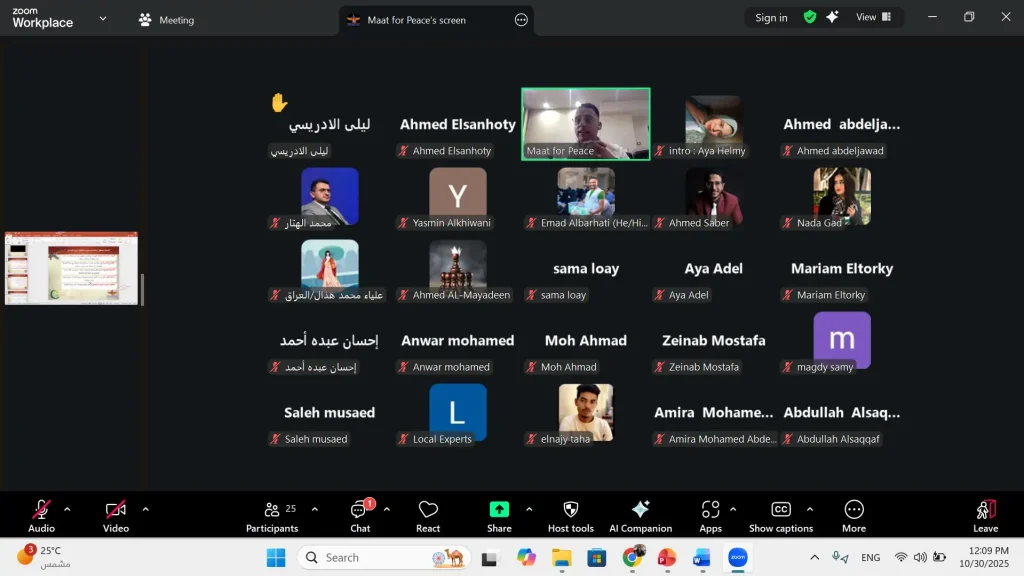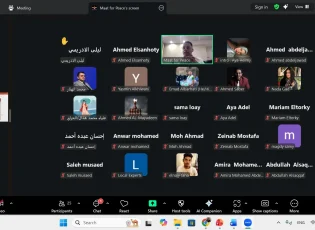Maat warns of the danger of applying additional penalties to the Damanhour detainees.
And it demands the government to facilitate the process of integrating them and their families into society
Maat Center expresses its concern, as confirmed by press reports, that the administration of Al-Abadeya Prison in Damanhour carried out a large-scale search campaign inside the detainees' wards. Politicians, after announcing their readiness to sit in their cells , And that the campaign witnessed the physical assault of security personnel.
The detainees had protested to the prison administration on the evacuation of ward 4 and their distribution to the rest of the prison wards, with the aim of accommodating 400 prisoners. Transfer them from Assiut General Prison There, the prison administration charged the detainee Hatem Salama Hassan Suleiman By inciting a sit-in and a strike and deposited discipline after he was tortured, hung on the doors of his cell and electrocuted, “according to what Al-Badil newspaper published the day before yesterday,” as punishment for him Demanding his release after an arrest that lasted for more than four years, against the backdrop of the Taba bombings, and the newspaper indicated that the housing administration intends to expel him to the New Valley Prison, and the detainees receive similar warnings to alienate them in the event of disclosure. To their families about what is happening inside the prison, and to prevent visits from some families, which increased the tension and discontent among the rational and their families.
The center states that Damanhour prison included a large number of residents of the Shubra al-Khaimah area who were arrested in connection with the bombings of Al-Azhar and Abdel Moneim Riad in April 2005, and their crisis remained in place until after the end of the case, according to a court ruling that the center refused to comment on, and the prison also included detainees from Cairo after the announcement. Regarding the control of the Victorious Sect organization on April 19, 2006, in which the State Security Prosecution acquitted its 22 young men, in addition to the “Al-Abadeya” prison, which included detainees from Sinai against the background of repeated bombings in Taba and Sharm El-Sheikh, during which suspicions were raised about the presence of foreign hands playing in the eastern borders of Egypt.
In its capacity as the coordinator of the Egyptian Network for the Defense of Detainees, the Center affirms its firm position on the continuing danger of repeated detention to peace in society and the relationship of the citizen to the state, and considers the disaster of detention the most prominent results of the emergency law in force since 1981 without interruption, which allows wide powers for the security authorities at the expense of the judiciary And the Public Prosecution Office, and the Center considers, in punishing detainees demanding freedom, by expatriating them to more remote prisons, a kind of increasing danger and a great burden on their families, whose members have turned into their families, and a violation of the rights of women in a community environment that provides them with dignity and pride and their children comfort and reassurance for a better future for them towards service Motherland .
The Center calls for the exclusion of any administrative penalties by the administration of Al-Abadeya Prison and other prisons against detainees by administrative decisions, considering these penalties as a clear violation of the minimum rules for the treatment of prisoners recognized in international covenants and agreements, and their continued detention is considered a governmental insistence on the absence of the judiciary’s role in adjudicating the emerging problems Between the citizen and the government, especially since hundreds of detainees receive a judicial ruling to release them every 45 days at most. The government refuses to implement it and continues to burden its budget and the budget of the families of Egyptians with greater burdens by imprisoning these people and depriving them of freedom and work. Women in Al-Qanater, during which the prisoners stressed the need to activate the role of the aftercare departments of the Prisons Authority, in the process of rehabilitating prisoners and their families and reintegrating them into society. Multiply their pain and the problems of their families.
shortlink: https://maatpeace.org/en/?p=32826











